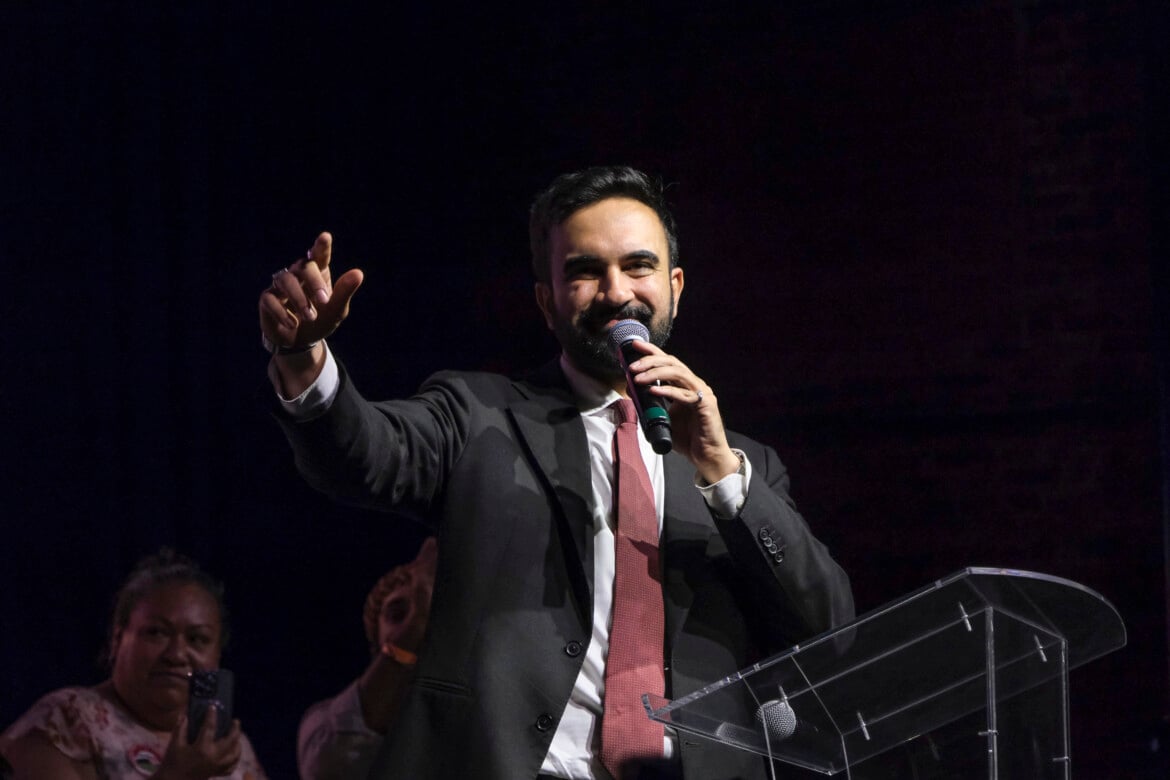Commentary
Mamdani’s New York victory offers hope to the US progressive left
Is this “model” replicable in other upcoming contests? In large metropolitan areas, a party with an unmistakably left-wing profile clearly has a real chance, as New York shows. Everywhere else, it’s still an open question.

A Muslim; a Democratic socialist; an immigrant; Asian; African; a New Yorker from Queens; in his 30s: ever since Zohran Kwame Mamdani joined the Democratic primary for mayor on October 23 last year, opponents inside and outside the party have tried to box him in with these labels. And out of all of them, which was the most widespread one, also among the right and part of the media? “Muslim,” of course. Republican Representative Elise Stefanik, a hardcore Trumper, even branded him a “Hamas Terrorist Sympathizer.”
In the city with the world’s second-largest Jewish population after Tel Aviv, the very idea of nominating Mamdani as the Democratic standard-bearer in the upcoming mayoral elections in November once struck even the progressive establishment – starting with the New York Times – as unthinkable, if not incendiary. “We believe that Mamdani does not deserve a place on New Yorkers’ ballot,” the paper’s editorial board wrote at the launch of his candidacy.
This is once again a sign of how much mainstream media – including the most renowned daily newspaper in the world – has drifted away from the real world. Out there, stigmatizing labels mean far less than they think, especially when flung against a candidate with many identities who has won support across every slice of the electorate, including a sizable share of the Jewish community.
No less than 430,000 New Yorkers voted for him in the city’s most heavily attended primary in history, because Zohran embodies all those identities and transcends them, armed with a commanding personality and a program that is able to speak to working people, whatever their religion, to those who are struggling, whatever their skin color, to those who are left out, no matter where they come from. He can speak to everyone who wants to turn over a new leaf. David Axelrod, former strategist for Barack Obama, praised him as someone who both has strong principles and is agile enough to be able to handle the well-known political games.
The size of the mobilization around his candidacy is stunning, all the more so because he faced Andrew Cuomo’s powerful, experienced, lavishly funded machine – also boosted by Republican donors – and still finished more than 70,000 votes ahead. Cuomo’s defeat throws Mamdani’s victory into sharper relief and turns the New York race into a snapshot of the Democrats’ broader crisis.
On one side was the party of political dynasties – Andrew, son of Mario, backed by the Clintons – of big donors and patronage machines; on the other side, the party of grassroots energy, small contributions and savvy social-media use.
“I haven’t seen this kind of energy since Barack Obama ran for president of the United States,” New York attorney general Letitia James told the New York Times, fresh from her courtroom battles with Donald Trump.
Is this “model” replicable in other upcoming contests? In large metropolitan areas, a party with an unmistakably left-wing profile clearly has a real chance, as New York shows. Everywhere else, it’s still an open question.
Since Trump’s election, national Democratic leaders have stayed mostly silent, save for high-profile governors like Gavin Newsom, Gretchen Whitmer, J. B. Pritzker and Kathy Hochul, plus big-city mayors acting on their own turf. Meanwhile Bernie Sanders and Alexandria Ocasio-Cortez have crossed America on their Fighting Oligarchy Tour, packing stadiums even in red states and counties with crowds eager to fight against the drift of the Trump era.
Sanders shaped the last two presidential cycles and remains central to Democratic dynamics. What remains of Clintonism, by contrast, has slipped into irrelevance, as Cuomo’s flop confirms. Obama remains a lone actor, never having built a faction of his own. In turn, organized labor has also lost some of its strength and influence inside the party, as shown by the recent resignations from the DNC of teachers’ union head Randi Weingarten and public sector union leader Lee Saunders, both in protest of new chair Ken Martin, accused of being tone-deaf towards workers.
Zohran’s victory must be read in this fraught context – not only as a morale boost but as a mandate for him, a democratic socialist (his most important identity), to help forge a political project that can rebuild the Democratic Party.
Originally published at https://ilmanifesto.it/rifondazione-democratica-a-new-york on 2025-06-26
